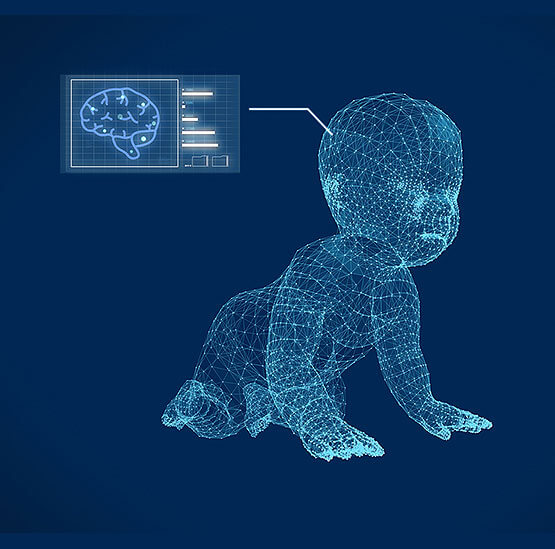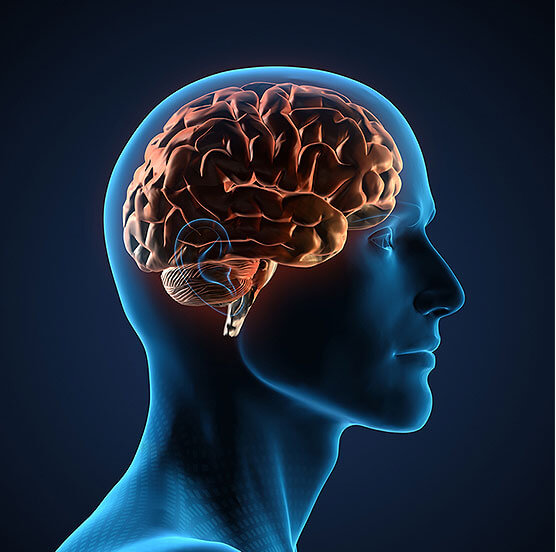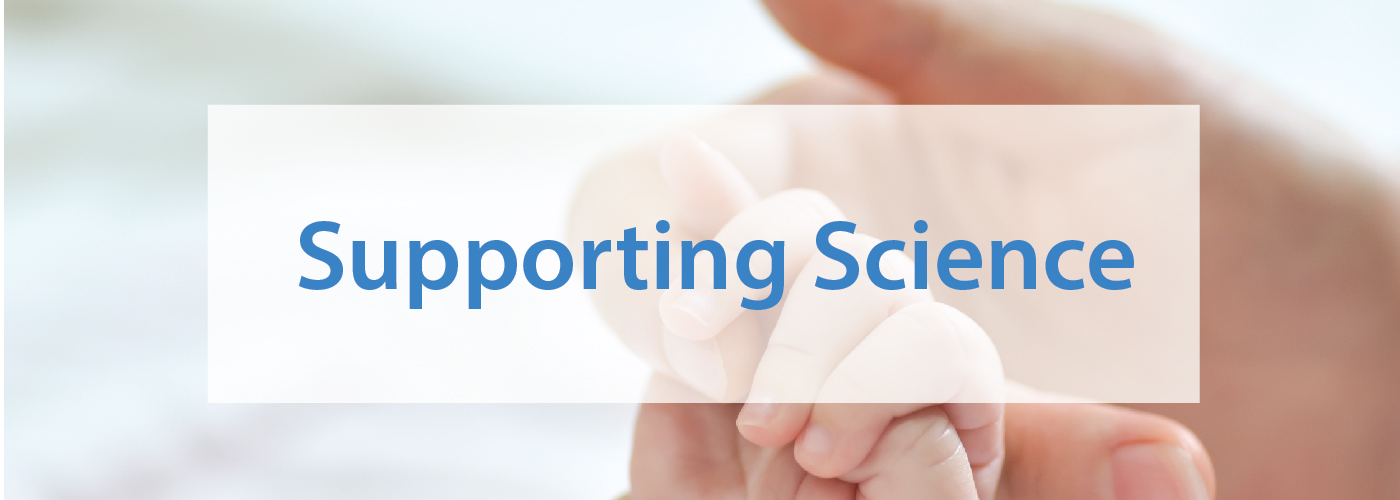Neuroscience is finally moving in on a complete picture of how and why BabyPlus offers an appropriate developmental experience for nourishing the lifetime cognitive and therefore, the behavioral resources that an increasingly challenged world requires.
Here are a few examples of how research continues to unveil and reinforce the potential of prenatal learning:
The Benefits of Reading to Your Baby in the Womb
“You may think the only benefits of reading to your unborn baby are the relaxation and bonding you feel. But science shows that reading to baby in the womb helps develop early language learning.
In small children, reading is proven to help with language development and increased word recognition. Reading can also create a positive bond between parent and child. It can provide a great wind-down before bedtime and spark an early interest in learning.
Maybe talking, singing, or playing music to a baby while in the womb comes naturally to many expecting couples. There’s much to be said for reading to a child in utero. There are numerous advantages—both for baby and the parents.”
Full article: greenchildmagazine.com
How Your Baby Learns Language
in the Womb
“Did you know that babies begin learning in the womb? Before she is even born, your baby has already been exposed to many opportunities for language learning while in utero.”
Language learning begins in the womb
“A study by Dr. Patricia Kuhl, Ph.D., stated that babies not only hear their mother’s voice and understand their mother’s inflection, but they are also already learning her language in the womb. This is the foundation for language. In fact, just hours after your baby is born, she can distinguish between your native tongue and the foreign language of another mother.”
Full article: HUFFPOST
BBC – Earth, July 6, 2016, “Babies Start Learning Before They Are Even Born”
Full article: bbc.com
MedicalXpress, July 8, 2015, “Research Provides Evidence Of Learning And Memory Six Weeks Prior To Birth” By Bobbie Mixon – Excerpts:
“Research on early developmental exposure to sound suggests babies begin to acquire knowledge in the womb by their 34th week in utero, three weeks earlier than previous research had shown.
Research led by Charlene Krueger, an associate professor at the University of Florida’s College of Nursing, and published in the journal Infant Behavior and Development, provides evidence that what fetuses hear by their 34th week in utero can inspire learning. That’s three weeks earlier than than the evidence of learning detected by previous research.
By the 38th week of pregnancy, memory is evident; births normally occur around 40 weeks…”
“…Lab testing involved measuring the fetuses’ heart rates while the unborn babies listened to a recorded female voice repeat the same nursery rhyme that was spoken at home by the mothers…
“…Krueger and Garvan concluded that the fetuses in the experimental group were responding to the nursery rhyme; that they begin to show evidence of learning by 34 weeks gestational age; and that they are capable of remembering what they hear inside the womb.”
Full article: medicalxpress.com
Additional Reading:
“Emergence and retention of learning in early fetal development” Infant Behavior and Development: Volume 37, Issue 2, May 2014, Pages 162–173, Charlene Krueger and Cynthia Garvan

Scientific American, Jun 16, 2015, “Study Of Fetal Perception Takes Off” By Ferris Jabr – Excerpt
“Newborns are hardly blank slates devoid of knowledge and experience, contrary to historical notions about the infant mind. Sensory awareness and learning start in the womb, as the recently reinvigorated study of fetal perception has made clearer than ever. In the past few years lifelike images and videos created by 3-D and 4-D ultrasound have divulged much more about physiology and behavior than the blurry 2-D silhouettes of typical ultrasound. And noninvasive devices can now measure electrical activity in the developing brain of a fetus or newborn. Recent insights gleaned from such tools provide a rich portrait of how a fetus uses its budding brain and senses to learn about itself and the outside world well before birth. Such research has improved care for preterm babies, suggesting the benefits of dim lights, familiar and quiet voices, and lots of comforting skin contact between mother and child.”
full article: scientificamerican.com
Science News, July 15, 2015, “How The Brain Perceives Time” By Laura Sanders – Excerpt:
“Nerve cells removed from a rat’s cortex, the brain’s outer layer, will respond in complex ways to the tempo of music, neuroscientist Antonius VanDongen of Duke-NUS Graduate Medical School Singapore and colleagues have found. After genetically engineering a network of nerve cells to respond to blue light, the team regaled the cells with ‘music’ — carefully timed patterns of light based on the rhythm and notes of songs. Upon “hearing” the songs, the cells’ electrical reactions could usually determine whether ragtime or classical music was playing at any given moment. And the cells got better as the seconds ticked by, hinting that they could hold a memory of the tempo information for about six seconds. Those results show that time processing is fundamental in the brain, says VanDongen. ‘This is a very basic thing,’ he says. A small group of neurons is the building block that may enable more sophisticated time processing.”
Full article: sciencenews.org

New York Times, February 23, 2015, “Mothers’ Sounds Are Building Block For Babies’ Brains” By Douglas Quenqua – Excerpt:
“The sound of a mother’s voice plays a critical role in a baby’s early development, multiple studies have shown. Now, researchers have demonstrated that the brain itself may rely on a mother’s voice and heartbeat to grow.”
full article: well.blogs.nytimes.com

